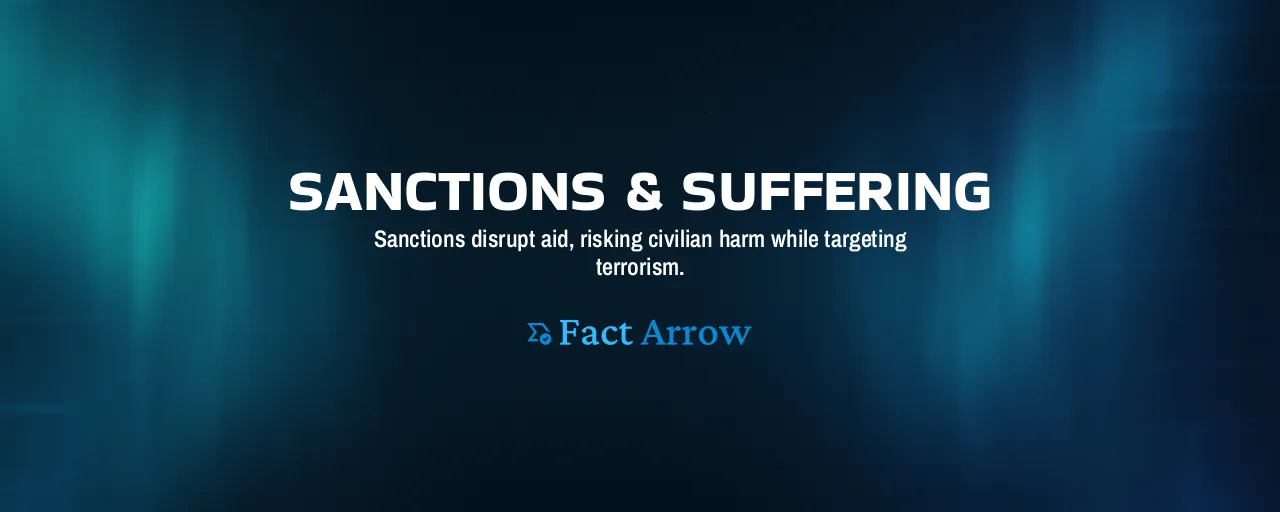A Plan That Punishes the Powerless
On June 10, 2025, the U.S. Treasury unleashed sanctions on five individuals and five charities, accusing them of funneling money to Hamas and the Popular Front for the Liberation of Palestine. The intent is straightforward: cut off terrorist funding disguised as humanitarian work. Yet the reality hits hard. These sanctions, while aimed at groups like Gaza's Al Weam Charitable Society, risk plunging Palestinian civilians deeper into a humanitarian abyss. Families already grappling with scarcity face the fallout of a policy that strikes too broadly.
Gaza's crisis is relentless. Parents scrounge for food, hospitals lack supplies, and children grow up knowing only war. Aid organizations, often working through local groups, are lifelines for these communities. But Treasury's sanctions freeze assets and halt transactions, threatening to sever these vital channels. Al Weam may have ties to Hamas, but it also employs locals who deliver aid. Closing it down targets terrorists and abandons people in desperate need.
No one denies the need to stop terrorism. The October 7, 2023, attack by Hamas, which killed civilians and left hostages, including Americans, demands a response. But broad sanctions are a clumsy weapon. They harm the innocent alongside the guilty, leaving us to ask: how can we justify a policy that leaves children hungry in the name of security?
Human rights advocates have sounded this alarm for years. Sanctions, they argue, are best when surgical, with clear protections for humanitarian work. Without them, battling terrorism means betraying our own values. Treasury's approach lacks this precision, forcing us to confront a painful truth: the people of Gaza are paying the price for our blunt tactics.
These are human beings, trapped in a conflict they didn't choose. Their lives are not statistics. If we truly value humanity, we need a strategy that fights terror without sacrificing the vulnerable.
Lessons From a Troubled Past
History offers stark warnings about sanctions gone wrong. Since the 2000s, the U.S. has wielded financial restrictions to target groups like al-Qaeda and Hezbollah. Tools like the Patriot Act and Executive Order 13224 empowered Treasury to freeze assets, blocking millions in terrorist funds by 2018. But the collateral damage is undeniable. In Syria and Yemen, banks, wary of penalties, stopped handling payments for aid groups, delaying critical supplies.
A 2018 USAID audit exposed $700 million in unvetted awards in Iraq and Syria, with some aid diverted to groups like Hay'at Tahrir al-Sham. The response? Halt programs, leaving civilians without support. In Gaza, after Hamas's 2007 takeover, the group taxed aid and manipulated beneficiary lists. Sanctions aimed to curb this, but they also strangled legitimate relief efforts, burying NGOs in compliance hurdles.
The pattern is clear. Broad sanctions push terrorists toward untraceable cash networks, like hawala systems, while civilians suffer the consequences. In Somalia, a UN probe found 30 percent of World Food Programme rations reached al-Shabaab. The solution? Suspend aid, leaving families hungrier. These examples reveal a flawed approach. Sanctions disrupt funding and disrupt lives.
Some defend this hardline stance, arguing that publicizing financiers in places like Turkey or Qatar deters terrorism. They see sanctions as a signal of strength. But when aid flows stop, desperation festers, and extremists exploit that pain to recruit. Are we dismantling terror networks or inadvertently fueling them?
Building a Better Approach
A smarter path exists, rooted in precision and compassion. Advocates for humanitarian principles urge targeted sanctions paired with rigorous oversight. Rather than shuttering charities, we can bolster independent audits to ensure aid reaches those in need. Transparent reporting and third-party monitoring can expose sham organizations without halting critical support.
Humanitarian exemptions are essential. Current sanctions include some carve-outs, but bureaucratic delays render them ineffective. NGOs need fast, clear licenses to operate in conflict zones. Global frameworks, like the UN's Counter-Terrorism Financing Convention and Financial Action Task Force standards, provide blueprints for tracking illicit funds while safeguarding aid. Why not use them fully?
Technology offers solutions. Blockchain tracking, tested in some aid programs, ensures donations reach their targets. Advanced identity checks can root out fraudulent charities without freezing entire operations. These tools are ready; we need the commitment to deploy them.
Global cooperation is vital. The U.S. has partnered with allies like the UK and Australia, as seen in 2024 joint actions against Hamas financiers. Yet legal barriers and trust gaps slow progress. The UN Crime Congress in 2026 aims to streamline data sharing. Acting sooner could protect more lives.
Choosing Humanity Over Harsh Measures
Treasury's sanctions reflect a mindset that values punishment over prevention. But we can disrupt terrorist financing without harming civilians. Security and compassion can coexist with the right approach.
Gaza's families deserve better than to be pawns in a financial war. Every delayed aid delivery, every frozen account, pushes them closer to despair. We have the tools—audits, exemptions, technology, partnerships—to target terrorists while protecting the vulnerable. The question is whether we'll act on them.
This is a call to action. Policymakers must heed humanitarian advocates, prioritizing precision over blanket measures. Sanctions should weaken terrorists, not the people caught in their shadow. Let's fight for a system that upholds our values and gives Gaza's families a chance to survive.
